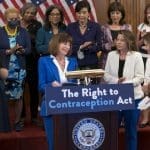Pence: New guidelines could send people exposed to virus back to work
The new recommendations show the administration trying to address political concerns brought on by efforts to fight the virus.

The Centers for Disease Control and Prevention is considering changing its guidelines for self-isolation to make it easier for those who have been exposed to someone with the coronavirus to return to work if they are asymptomatic.
The public health agency, in conjunction with the White House coronavirus task force, is considering an announcement as soon as Wednesday, Vice President Mike Pence said on Tuesday.
Under the proposed guidance, people who are exposed to someone infected would be allowed back on the job if they are asymptomatic, test their temperature twice a day, and wear a face mask, said a person familiar with the proposal under consideration. The person described the proposal on the condition of anonymity because the draft had not been finalized.
The new policy is aimed in particular at workers in critical jobs. But it also comes as the Trump administration is eyeing what it calls a “stabilization” in infection rates and looks toward rolling back some of the restrictive social distancing guidelines and restarting the nation’s stalled economy.
The proposed guidance would follow recommendations made by the CDC that eased self-isolation requirements for front-line medical workers who were exposed to the virus. Under CDC guidance, medical workers who have been exposed to the virus without protective equipment but who have no symptoms can return to work with a mask and temperature checks after 14 days.
Pence on Tuesday said the White House is focusing on the “point of need” for the current situation but is also operating on another track to consider future recommendations for the public.
“Some of the best minds here at the White House are beginning to think about what recommendations will look like that we give to businesses, that we give to states, but it will all, I promise you, be informed on putting the health and well-being of the American people first,” Pence said.
For most people, the new coronavirus causes mild or moderate symptoms, such as fever and cough that clear up in two to three weeks. For some, especially older adults and people with existing health problems, it can cause more severe illness, including pneumonia, and death.
In fashioning the recommendations, the administration appeared to be trying to balance political concerns about wanting to preserve as much normalcy as possible with public health concerns that some infections are being spread by people who seem to be healthy.
Recommended

Biden campaign launches new ad focused on Affordable Care Act
Former President Trump has said he wants to do away with the popular health care law.
By Kim Lyons, Pennsylvania Capital-Star - May 08, 2024
Ohio doctors fear effects of emergency abortion care case set to go before U.S. Supreme Court
A federal law that allows emergency departments to treat patients without regard to their ability to pay will be under U.S. Supreme Court scrutiny this week, and Ohio doctors are concerned about the case’s local impact on emergency abortion care.
By Susan Tebben, Ohio Capital Journal - April 23, 2024
House GOP votes to end flu, whooping cough vaccine rules for foster and adoptive families
A bill to eliminate flu and whooping cough vaccine requirements for adoptive and foster families caring for babies and medically fragile kids is heading to the governor’s desk.
By Anita Wadhwani, Tennessee Lookout - March 26, 2024


















































































